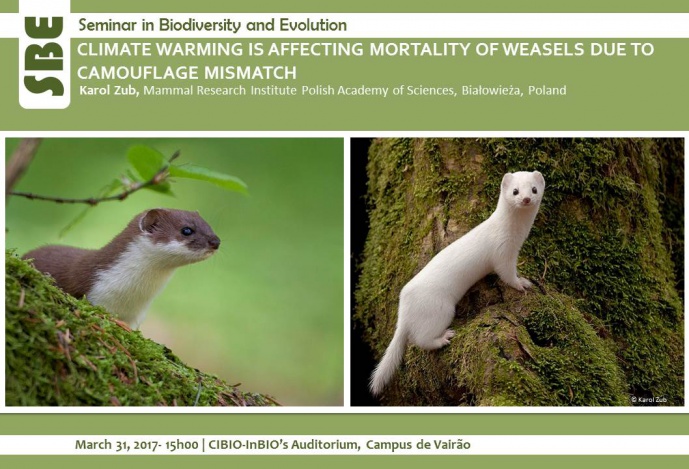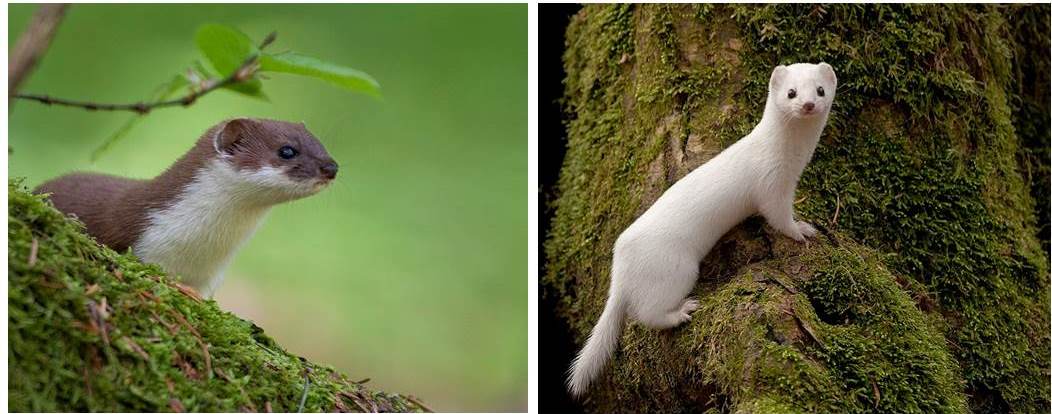CLIMATE WARMING IS AFFECTING MORTALITY OF WEASELS DUE TO CAMOUFLAGE MISMATCH


In Poland two subspecies (morphs) of weasel Mustela nivalis exist, which differ in winter pelage colour, white in M. n. nivalis and brown in M. n. vulgaris. Analyze of trapping data from the Białowieża Forest, where both subspecies occur sympatrically, revealed that proportion of M. n. vulgaris increased along with decreasing number of days with snow cover and increasing mean ambient temperature. Weasels are vulnerable to attacks from other predators, thus cryptic coat colour may affect probability of detection, and in consequence, their mortality. We hypothesize that natural selection should favour one of phenotypes, according to prevailing weather conditions during winter. Alternatively, natural selection is not targeting winter pelage color, but other traits associated with specific phenotype, e.g. resting metabolic rates (RMR), thermoregulation capacity (ability to dissipate heat in summer or to lower body temperature in winter) or behavior (change of activity period, avoidance of certain background color). To demonstrate that white or brown winter pelage may change predation rates, we performed a field experiment using weasel models (white and brown) exposed against different background colours. This experiment revealed that contrasting models of weasels were attacked significantly more often by predators than those matching the background colour. Results of our study provide another example that in mammals variation range of phenotypic traits is big enough to enable rapid adaptations to changing climatic conditions.
Main research interest of Karol Zub is ecology, physiology, evolutionary biology and genetics of mammals and birds. Recently his scientific work focus on morphological, physiological and behavioural adaptations of mammals to seasonal and long-term changes in the environment, caused by climate, food resources, competition and predator-prey interactions. However, classical ecology is still important part of his research, e. g. population dynamics, habitat selection or variation of diet. In his studies he uses different field, laboratory and experimental techniques, e.g. radio-tracking, estimation of energy expenditures (using doubly labeled water technique and measurements of resting metabolic rates), GIS and statistical modelling, genetic analyse of quantitative traits.
[Host: José Melo-Ferreira, Conservation Genetics and Wildlife Management and Population Genetics, Hybridization and Speciation]
Image credits: Karol Zub